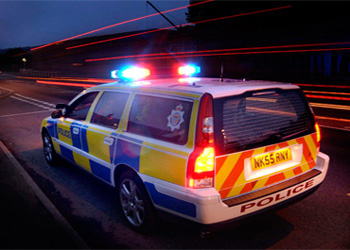Top Road Traffic Offences In The UK
Most Common Motoring Offences
Detailed below are the top ten most frequently prosecuted road traffic offences in the UK.
Solicitors who deal with all areas of criminal law often aren’t fully familiar with the ideal legal arguments that can be used to defend your case if you have been accused of any of the road traffic offences below;
Fail to provide driver identity
Following a driving offence, you will receive a S172 driver information request. You will receive six points for not returning the form. S172(4) and Section172(7)(b) RTA 1988 or the road traffic act offer two statutory defences.
A defence is valid if you demonstrate that you have used reasonable diligence to establish who was driving the vehicle at the time of the offence, or that you have never received
the request form to provide the necessary information.
Insurance Related Driving Offences
When stopped driving with no valid insurance, you are considered guilty, regardless of your mitigating circumstances. When found guilty, or if you plead guilty to driving with no car insurance then you will get six to eight penalty points.
Drivers are often unaware that their insurance broker has cancelled their insurance and not notified them. The Special Reasons Argument can be used if you can show the court that you genuinely and honestly believe that you had valid motor insurance in place.
Speeding
In addition to incurred court costs for your speeding offence, speeding also carries the following, a fine, three to six penalty points and a possible driving ban. Recent road traffic case law makes it very tricky to contest speeding allegations without expert evidence.
If you are facing a driving ban for speeding, seek professional advice from leading national motoring solicitors Pattersonlaw.co.uk speeding defence solicitors to successfully defend your licence.
Drink Driving
The drink driving limit in the UK is 35mg in breath. A drink drive conviction involves a minimum mandatory disqualification of twelve months. To win defending a drinking and driving case, you will need to prove one of the following three points, either; you were not the driver, you were not in a public place, or that you didn’t drink until after you had finished driving.
In some instances, if you only drove for a short distance, or it was an emergency, or if you can demonstrate that you unwittingly consumed alcohol then you may also avoid a drink driving ban.
Drunk in Charge
To be convicted of being drunk in charge of a vehicle, the prosecution need to prove to the court that you were in fact above the legal drinking and driving limit and that you were the person in charge of the car at the time.
A viable defence for drunk in charge is to prove to the court that you didn’t plan to drive until you were under the drink driving limit. If the court finds you guilty then you will be given either ten penalty points on your licence and possibly a discretionary driving licence ban.
Mobile Phone Offences
To be found guilty of using a phone whilst driving, you need to be holding the mobile and using it whilst driving. Because use of a mobile phone can be a grey area, many Magistrates often have differing views.
It is still an offence if you are stationary at junctions for example.
Driving Without Due Care and Attention
Driving without due care and attention requires the prosecution to prove to the court beyond reasonable doubt that your driving standard fell short of the level normally expected of a competent and careful driver.
Low speed car park scrapes and scratches as well as undertaking offences are good examples of driving offences covered by without due care. At the discretion of the police you can be offered a Driver Improvement Course instead of prosecution.
Fail to Report
If, after an accident, damage was caused to a vehicle, person or property, then, as the driver you have a duty in accordance with Section 170 of the Road Traffic Act 1988 to stop and exchange details. From the time of your accident you have 24 hours to report it to a police officer if you were unable to exchange details with the other party at the scene.
Failure to comply carries five – ten licence points or a driving ban at the Magistrates discretion. If you don’t know damage has been caused, you have a valid defence if you can demonstrate to the Court that it was reasonable you didn’t know that you had been involved in an accident.
These driving offences are otherwise known as hit and run and are considered serious by Magistrates.
Dangerous Driving Offences
To be convicted for dangerous driving, the quality of your driving must fall below what is required, but in addition it should be plain to a careful and competent driver that the driving is dangerous.
The courts take dangerous driving seriously, meaning that it carries a minimum twelve month driving licence disqualification, which includes a complete driving licence re-test in order to regain your licence, as well as a potential prison sentence for more serious cases.
No Licence Motoring offences
This is one offence that frequently causes a lot of confusion. If you were driving on the road without L plates or had never passed a driving test, then you would be guilty and the offence would be endorsable.
If the DVLA asked you to return your current licence to them and they suspend your driving entitlement, the offence is non-endorsable. Many people believe incorrectly that ‘no licence’ means that your insurance is rendered invalid, but that is incorrect.
No licence motoring offence can be confusing, for all parties, in addition, many Magistrates are unsure if this driving offence carries driving licence penalty points or not. Be sure to get the best possible result for your Court case with expert opinion from a dedicated UK driving law solicitor.

